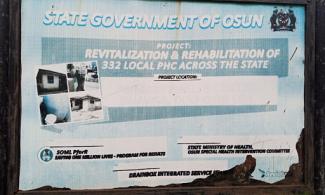
HumAngle's investigation revealed the poor state of primary health centres in Osun State despite the multi-million dollar rehabilitation and revitalisation grants from the World Bank.
Not many people know where the Primary Health Centre (PHC) in Inisha community, Odo-Otin Local Government Area (LGA) of Osun State, Southwest Nigeria is located.
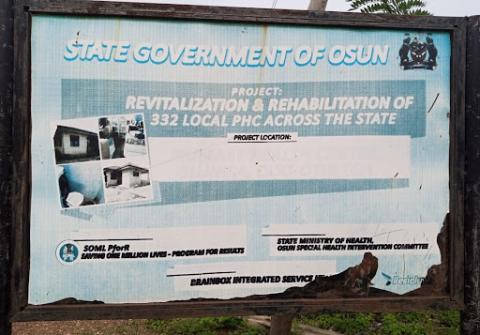
After hours of searching, HumAngle discovered the PHC via a faded signpost, pointing to a nondescript part of the community. There, it unveiled a building with fashionable rooftops and paint but an awful interior.
“The government only did a shady job when they came to renovate the health centre in 2020. We have long been cut off from the grid and the government’s promise to ensure that we have electricity was not fulfilled. We use kerosene lamp during late night child labour,” an official who pleaded anonymity for fear of backlash said.

The official said the borehole dug for water supply is dysfunctional and all the taps fixed at the maternity are worn out. HumAngle also observed that the facility is short of beds to cater for patients.
“We don’t have a family planning and laboratory unit. We use our delivery room for family planning services and it is not ideal,” the official added.
As this reporter moved from one ward to another, a nurse intercepted him, saying the government had long forbidden inspection of health centres in the state without approval from the ministry of health.
Threatened health officials
HumAngle learnt that some of their colleagues had in the past lost their jobs after granting interviews about the poor state of health facilities in Osun. The nurse later reached out to the executive secretary of the primary healthcare board in the local government on the phone to report this reporter’s visit.
The secretary, who was simply identified as Pharmacist Salau, told them not to allow HumAngle carry out the assessment of the PHC. Aside from broken beds, the compound has been overtaken by tall grasses which indicates lack of proper cleaning.
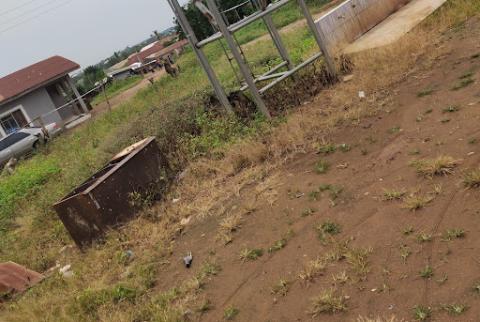
Residents who patronize the PHC lamented the lack of basic medical equipment and denial of proper care.
“My wife almost lost her life during childbirth due to lack of electricity. Her case was critical at midnight and needed to be transferred to a general hospital but there was no ambulance for emergency services.
“No water supply, drip stands, usable toilets and even adequate staff. I had to wake my neighbours who have a car to help take my wife to a private hospital for proper medical care. In fact, we could not get there before my wife gave birth in the car,” Rasaq Adio, a resident in the community, told HumAngle.
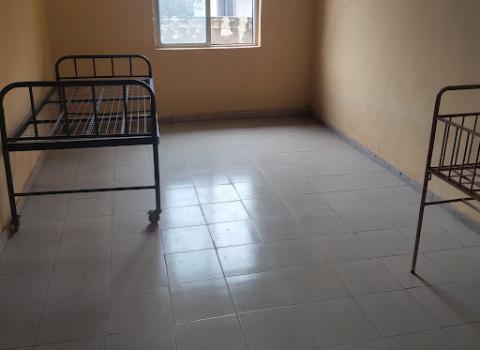
Another resident, Risikat Alabi, said the community rejoiced during the renovation of the PHC in late 2019 but they were surprised that a poor job was done.
“Except repainting and changing of the hospital’s roof, nothing significant was done here. We thought the government had finally yielded to our pleas of renovating the decrepit hospital but we are surprised what we got afterwards. No water and other things to make the health centre serve the people better,” she said.
The renovation and rehabilitation of the PHC was awarded to Brainbox Integrated Services Limited. The company has no record with the Corporate Affairs Commission (CAC) and an independent check showed that it is a marketing firm with zero history of construction work.
Checks by HumAngle revealed that the company is owned by Sola Oladepo, the current commissioner for environment and sanitation.

Sources familiar with the matter told HumAngle that the PHCs rehabilitation contracts were awarded to companies owned by loyalists of current Governor Gboyega Oyetola and his cabinet members, in a clear contravention of Public Procurement Act (PPA) 2007.
The basic underlying principles of the PPA for contracts include the following: open competitive bidding, equal and equitable treatment of interested bidders, transparency, and professionalism in the public sector procurement system. These principles are indeed relevant to the interpretation of the legislation.
Instead of open competitive bidding, sources within Oyetola’s administration said rehabilitation of the health facilities were awarded to allies of the government.

As of the time of filing this report, Oladepo was still the chief operating officer of the company. The commissioner did not deny it when contacted by HumAngle.
“My company did fencing and other renovations of the structures. Putting beds in the hospital was not part of the contract given to us and the borehole was not also given to us. We only told our plumber to link the pipes from the borehole to the toilets. That’s all I know about it,” he said.
Asked how much the contract was awarded and why he took the job even as a political office holder, he simply said “We got it immediately after the campaign that brought Governor Oyetola to power. My manager handled the project and was briefing me. I didn’t really follow up on the project.”
$20.5 million revitalisation grant
In 1978, Nigeria, along with other World Health Organisation (WHO) member countries adopted the Alma Ata Declaration instituting the primary health centres as the basic structural and functional unit of public health delivery system.
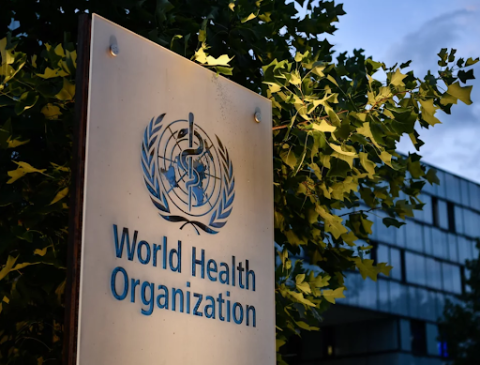
The aim was to provide accessible and affordable health for all, especially at the grassroots. In lieu of this, the Osun State Government in 2018 said the state was due to receive $20.5 million World Bank support funds to help fix its weak health facilities.
The funds fall under “Saving One Million Lives (SOML)” programme for result (PforR) initiative with the objective to increase the utilization and quality of high impact reproduction, child health, and nutrition interventions in Nigeria.
It is a programme of the Federal Government of Nigeria created in 2012 and assisted by the World Bank to address Nigeria’s slow progress in improving health status and health services. It is expected that the funds are used in an efficient manner to maximize the gains in child and maternal health.
In 2019, Oyetola confirmed that Osun already got the grants, promising that it would be for revitalisation of nine general hospitals and 332 Primary Health Centres – one per ward – across the state.

The state’s commissioner for health, Rafiu Isamotu, announced the completion of the project in July 2020, stating that his principal, Oyetola is dedicated to making health care of residents his corner priority and had channeled the grant to revitalisation, renovation, rehabilitation and upgrading of the PHC.
Corroborating this, the State Commissioner for Works and Transport, Remi Omowaiye, explained that the grants had been judiciously used. He said his ministry handled the rehabilitation of bed wards and other needs at the PHCs.
Findings by HumAngle, however, revealed that PHCs in the state are still in shambles despite the multi-million dollar grant. Aside from the PHC in Inisha, this reporter visited a few others within the state.
Dysfunctional borehole, decrepit wards
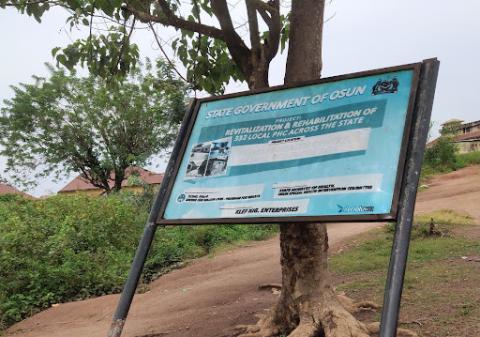
Messages like “Immunisation here”, “breastfeeding rules” and other educational health posters on tuberculosis and malaria, written in Yoruba and English language were hung at strategic points of the PHC in Okini, Egbedore LGA of the state.
This facility is one of the few meant to meet the people’s immediate health needs in the local government. With bold imprints on its signpost, it was obvious the centre was rehabilitated with a world bank grant in 2020 but the beauty is only skin deep.
A look around the facility showed that it had no functional ambulance to aid referrals, and relatives of patients have to provide their own transport in the event of an emergency.

“We have a lot of challenges here,” an official who pleaded anonymity because she was not authorised to speak said. “We don’t have a baby weight scale, chairs, tables or beds. We also want the government to provide us with things like anti-bleeding drugs, circumcision kits, etcetera.”
Asked what was done during the renovation of the health facility, she said the building was only repainted in lively cream colour. As of the time of HumAngle’s visit, the PHC had no electricity or generator to power the facility.
The official who appeared frustrated by the poor renovation done by the government stressed that “they made a borehole for us but they didn’t connect pipes to make it run at the PHC toilets and other points where water is needed. This renders the borehole useless actually. The only thing we can really point out that was perfectly done during the renovation was repainting of the facility.”

This reporter observed that the labour room has no befitting bed and there is no lie-in-ward where patients who deliver newly born babies are admitted to rest for necessary medical attention.
Residents also told HumAngle that the PHC is an example of the rot in the primary healthcare system in Nigeria.
Seyifunmi Ayoola who lives in the community said their hope was rekindled when the government came for the renovation of the PHC, thinking they will make some investments in social safety programmes such as maternal and child health but that never happened.
“We are not proud of the rehabilitation because we are being denied of befitting treatment when sick. The rich would rather go to private hospitals than come here because there is no equipment to attend to us. We hope the government will listen to our cry and make the health centre befitting for residents,” the petty trader said.
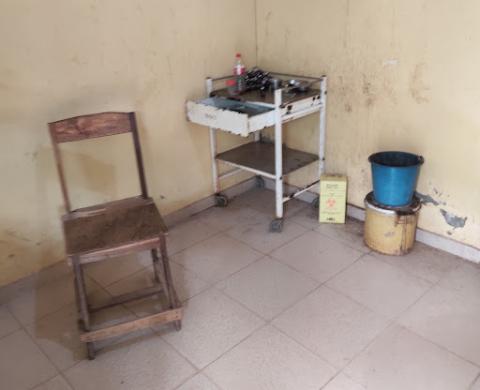
Checks by HumAngle showed that the contract was awarded to Klef Nigeria Enterprises. The company did not have an email address, phone number, physical address, website and other contact information to track it. Our reporter also checked the CAC website for the status of the company but it was inactive.
Kerosene lantern for delivery
What struck this reporter on his first visit to Oke-Ayan PHC in Odo-Otin LGA of the state were the buckets arranged under the roof edges to collect rainwater, apparently a sign of insufficient water supply. The facility also lacks other basic needs including electricity.
Asked how they cope in the event of a complicated birth requiring emergency obstetric intervention, HumAngle learnt that residents are most times transferred to another hospital.
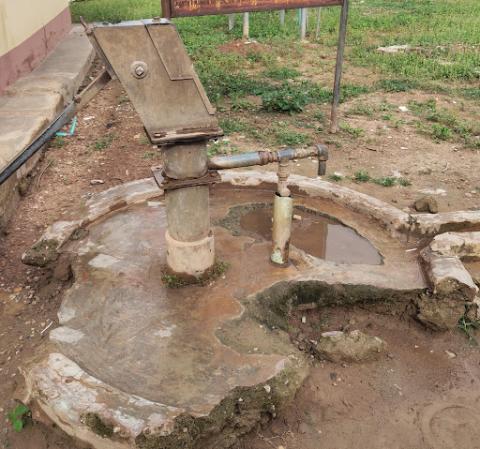
“The facility is always short of drugs and their beds are not enough. Even the delivery room is not standard enough. We cannot have serious illness and be sure of getting adequate care at the facility. The fear is that even when things get complicated, there is no ambulance to carry patients,” a resident and motorcyclist, who took our reporter to the facility said.
Corroborating the testimony of the residents, an official at the PHC who also pleaded anonymity said “our drugs and beds are not enough. There is nothing that is sufficient, even the benches.” She also drew this reporter’s attention to a kerosene lantern which she and her colleagues use in the labour room at night as standby for blackouts.
“Even the borehole isn’t functional. The water closets and all are not functioning as water doesn’t get into the clinic,” she added. “It’s the old things that have been there before renovations that we still use. There’s no room for members of staff to sleep in-between shifts. Once there’s no light, that’s all. We use that small lantern and it’s just one.”

The project was awarded to NewBold Business Services Limited, a company that has no clear objective as to the kind of service it provides, whether construction, information technology-related, or general supplier. Calls and emails sent to the organisation’s official contacts received no response. The status of the company was not also active on the CAC website.
It is, however, not clear whether its Director, Shamsudeen Mustapha, had any relationship with the state government before the contract was awarded.
HumAngle also visited the PHC at Atiba in Olorunda LGA. The situation there was not different from other facilities. Health officials, however, said they aren’t permitted to speak with the press.
“I don’t have the right to grant any interview and you cannot access the PHC. We have been warned against speaking with anyone about the state of the health facility,” one of the officials said.
Residents told HumAngle that the PHC does not have electricity, drugs, and is short of staff. One of them, Kehinde Ajiboye, said “the facility is short of staff especially at night when they run skeletal operations. They attend to patients very well in the morning but no one feels comfortable going there at night because there is no electricity. They use kerosene lanterns for delivery at night and no emergency vehicles in case of complications.”

Like our previous experience with other contractors, Ayinkab Ayobami Ishola Enterprises carried out the renovation and rehabilitation of the facility. The company does not also have a clear objective as to the kind of service it provides. It did not respond to enquiries sent by HumAngle.
Authorities ignore interview request
For weeks, HumAngle tried to get the reaction of the state government to these findings. All requests were not responded to.
When contacted, the state commissioner of health, Isamotu, told HumAngle to send the findings to him for adequate responses to our questions. A week after sending enquiries to him via text message and WhatsApp, the health commissioner said “none of our renovated facilities should be in a state of disrepair. However, I have asked our executive secretary to investigate this and revert. I will definitely get back to you after I have been properly briefed.”
He is yet to revert to subsequent calls and follow-up messages days after.
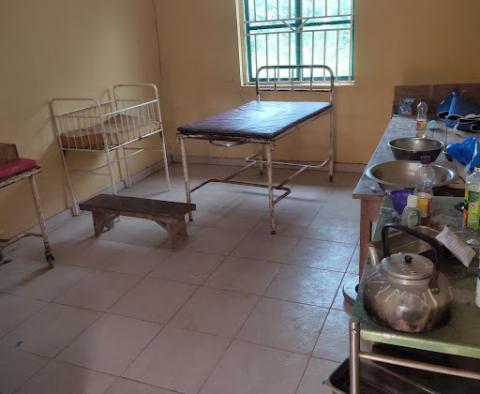
HumAngle also reached out to Osun commissioner of works, Omowaiye, who was the chairman of the committee that supervised the PHCs renovation projects. He did not respond to calls and messages sent to him via SMS and WhatsApp.
Also, the state commissioner of information, Funke Egbemode, requested that HumAngle’s findings be made available to her on WhatsApp. She acknowledged the message but didn’t give feedback weeks after.
In addition, the chief press secretary of the governor, Ismail Omipidan, promised to speak with commissioners involved and get back to our reporter. He has not done so, days after.
Condemnation
The Connected Development (CODE), a non-profit organisation devoted to ensuring transparency and accountability in government spending in Africa, however, raised alarm over the state of the PHCs in Osun.
The group in a statement released in August said the renovated PHCs in the state were not operating up to standard. CODE did a fact finding at the hospitals and discovered that most of them are short-staffed and some have resorted to using torches during delivery due to disconnections from the national grid by Ibadan Electricity Development Company (IBEDC) over unpaid bills. Also, many lack proper and functional waste disposal systems.
Speaking with this reporter on the outcome of the investigation, Anthony Adejuwon, state leader of CODE said the organization assessment and HumAngle’s reports of the health facilities shows the government has failed to utilise the $20.5 million properly.
“We identified that these PHCs are short-staffed and most of them do not even have electricity. When there is no electricity, they cannot pump water, hence the borehole cannot work.”
He expressed displeasure that residents making use of the PHCs rarely speak up about the poor state of health facilities. “We think we are working for the people but sometimes, they think we are working against them when asked to speak up. This also affects health officials who are also scared of losing their jobs.”
On the way forward, Anthony said the government needs to be open to its citizens and people should be enlightened that “it is their job to demand quality healthcare system.”
…………………………………….
This story was produced in partnership with Civic Media Lab under its Investigative Reporting Project.